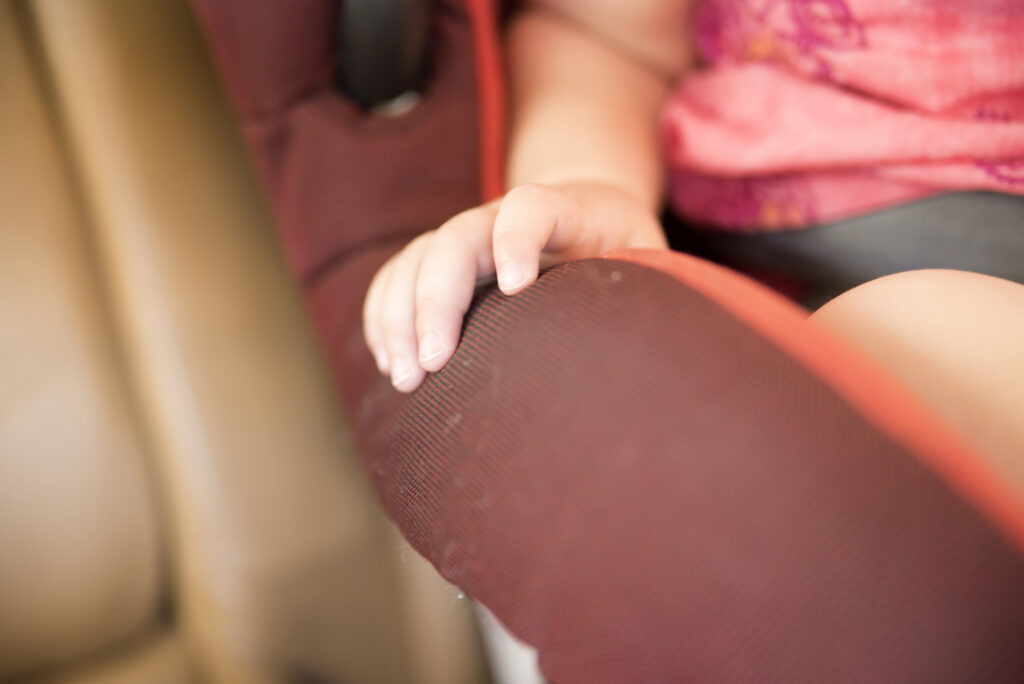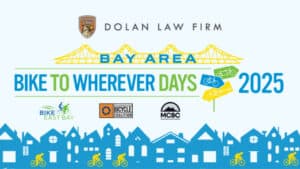
This week’s question comes from Cheryl in Petaluma, who asks: “I recently heard your PSA on the radio regarding children dying from heat stroke by accident when they are locked in cars. What are the legal repercussions of leaving children unattended in parked vehicles and are there any new laws designed to protect children in automobiles?”
Thank you for your question, Cheryl. This issue was addressed in 2001 with the enactment of Senate Bill 255, also known as Kaitlyn’s law. Kaitlyn Russell was a six-month old girl who died of heat stroke after her babysitter left her alone in a van for almost three hours. The outside temperature at the time exceeded 100 degrees.
After Kaitlyn’s sad and preventable death, the California State Senate passed legislation prohibiting a parent, or any other person responsible for a child, from leaving any child six years of age or younger alone inside a motor vehicle when conditions exist that present a significant risk to the child’s health or safety. (Cal. Veh. Code § 15620.) It is considered a strict liability offense, meaning there are no exceptions for those who keep the air conditioning on or roll the windows down. A violation of Kaitlyn’s law results in an infraction punishable by a fine of $100.00. However, when an unattended child is injured or dies, an individual may be charged with child endangerment, manslaughter or any other applicable provision of law.
So, what constitutes a “significant risk to the child’s health or safety?” When Kaitlyn’s law was enacted, the California Highway Patrol Commissioner stated that “[t]here is no excuse for leaving a child alone in a vehicle, not even for a few minutes.” Research and statistics clearly support the Commissioner’s comments.
Jan Null, a meteorologist at San Jose State University who has exhaustively studied interior temperatures of automobiles, says that a car can reach in excess of 140 degrees in just an hour’s time on a 90 degree day. Furthermore, a young child’s body temperature will rise three to five times faster than an adult’s will, increasing the risk of serious injury or death. The dangers posed to unattended children in vehicles are not limited to heatstroke. These children are also at risk to carbon monoxide poisoning, carjacking, abduction, runaway vehicles and emotional trauma. Thus, even when outside temperatures appear mild, leaving a child alone in a motor vehicle is considered a significant risk to the child’s health and safety in California.
As inconceivable as it sounds that someone could forget a child in a vehicle, it happens. NoHeatStroke.Org in conjunction with the National Safety Council has reported that over the last twenty years, 718 children have died after being left unattended in vehicles. More than half of these deaths occurred after the caregiver simply forgot that the child remained in the car. Without question, all of these deaths were preventable. We all have a duty to keep our children safe. Never leave a child alone in or around a vehicle and always look before you lock your car.
Turning to the issue of more recent legislation, California continues to pass laws designed to improve child car safety. In recent years, the National Highway Safety Administration and the American Academy of Pediatrics have recommended that children stay rear-facing in a child safety seat in the vehicle’s back seat until they are 2 years old to protect their neck and spine. Statistics show that rear-facing child safety seats have been proven to be five times safer than forward-facing ones for children under 2.
Consequently, as of January 1, 2017, California now requires that all children must be secured in a rear-facing child safety seat in the vehicle’s back seat until they are 2 years old. The law previously required children to stay rear-facing until they turned 1 year old. The new law does not apply to children who weigh more than 40 pounds or are 40 inches or taller.
Thank you again Cheryl for your question. Our children are among the vulnerable members of our society. We all need to be aware of the dangers to children in cars and take the necessary steps to keep them safe.
By attorney Christopher B. Dolan, owner of the Dolan Law Firm. Email Chris questions and topics for future articles to help@dolanlawfirm.com










